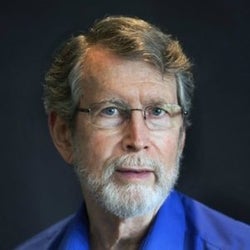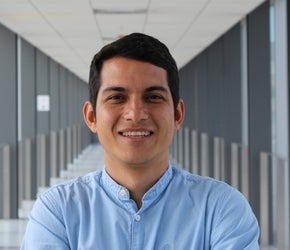Seminar Abstract :
(Hybrid: Virtual and In-Person)
Date : Thursday, 27th June 2024
Place : Online and at the WISA Flight Simulation Lab, University of Waterloo (see registration page for details)
Time : 11:00am - 12:30pm
In an era where the fusion of technology and human capability is more crucial than ever, the "Vital Pulse" seminar emerges as a collaborative event designed to explore the innovative intersection of physiological monitoring, biofeedback, and intelligent adaptive simulation in aviation training environments. Co-hosted by the Waterloo Institute for Sustainable Aeronautics, this two-hour seminar features a demonstration and insights from distinguished keynote speakers from NASA Langley Research Center.
"Vital Pulse" aims to illuminate the significant advancements in biofeedback technologies and their applications in simulators for pilot, aircraft, and spacecraft training. The seminar will delve into how these technologies not only enhance the training process by providing real-time, adaptive responses to trainees' physiological states but also ensure a higher degree of safety and efficiency in preparing pilots for the demanding conditions of flight and space exploration.
Participants will gain an in-depth understanding of the latest research and developments in the field from leading experts, witness firsthand the cutting-edge adaptations in simulator technology, and engage in discussions on the future directions and potential of this technology in aerospace training programs. The event is structured to foster an engaging environment where academics, researchers, industry professionals, and enthusiasts can share ideas, enhance their knowledge, and collaborate on potential advancements.
Join us at "Vital Pulse" to be at the forefront of this transformative journey in the aeronautical domain, paving the way for smarter, safer, and more efficient training methodologies that align closely with the physiological and psychological demands faced by pilots in the modern age of flight.
Agenda :
- Welcome by Dr.Suzanne Kearns and Dr. Roxy Fournier (5 min)
- Talk by Dr. John E. Muñoz (15 min):
- Title: “Physiological Computing Fundamentals: tools and methods for sensing body and mind.”
- Abstract: This talk explores the intersection of technology and human physiology, introducing the essential tools and methods for monitoring and interpreting bodily signals under the Physiological Computing framework. This talk delves into wearable sensors, biofeedback mechanisms, and adaptive systems that capture heart rate, brain activity, and other physiological markers. Emphasizing real-time data processing and application, it highlights how these technologies enhance our understanding of the mind-body connection, improve performance, and promote well-being. Attendees will gain insights into the practical implementation of physiological computing in monitoring scenarios for pilot training.
- Talk by Dr. Alan Pope (20 min):
- Title: “NASA Modulation Team: Psychophysiology and Biofeedback Mechanisms for Pilot Training and Performance Quantification.”
- Abstract: In this session, Dr. Pope will delve into the advanced psychophysiological methods and biofeedback mechanisms developed by the team to enhance pilot performance and training efficacy. Dr. Pope will present pioneer research on how real-time physiological monitoring, including metrics such as EEG and heart rate variability are employed to develop adaptive training systems. These systems adjust in real-time to the physiological states of pilots, fostering a more effective and personalized training experience and exploring future human factors applications in cognitive training, system adaptation, human-autonomy teaming and video games.
- Talk by Mr. Chad L. Stephen (30 min):
- Title: “Optimizing Attention and Performance in Aviation: Insights from Multimodal Psychophysiology.”
- Abstract: This talk will delve into the innovative use of multi-modal psychophysiological methods, including eye-tracking, galvanic skin response and EEG, to study and enhance human performance and attention during flight operations. Drawing on recent findings and methodologies for real-time biofeedback and psychophysiological sensing using wearables, Chad will explore how real-time monitoring of pilots' physiological and cognitive states can be leveraged to develop adaptive training systems. These systems are designed to improve situational awareness, reduce cognitive workload, and enhance decision-making processes, ultimately leading to safer and more efficient flight operations.
- Q&A moderated by Dr. Roxy Fournier (20 min)
- In-person flight simulator demo with WISA (20 min)

Dr. Alan Pope
Dr. Alan Pope is a pioneering engineer-psychologist at NASA, studies how cockpit design affects crew performance. He is well known for his research on pilot vigilance ("hazardous awareness states") and biocybernetic adaptation (technology adapting to humans). Dr. Pope retired from civil service in 2016 and is currently Distinguished Research Associate at LaRC conducting research with Brain-Computer Interface (BCI) technologies for future human factors applications in cognitive training, system adaptation and human-autonomy teaming. Dr. Pope’s research has developed human response measurement technologies to assess the effects of advanced crew station concepts on the crew’s ability to perform flight management tasks effectively.

Mr. Chad L. Stephens
Chad L. Stephens is an aerospace technology researcher with NASA Langley Research Center in the Crew Systems and Aviation Operations Branch since 2009. Mr. Stephens earned a B.S. in Psychology and a M.S. in Psychophysiology. He has performed extensive research in the field of human factors, with over 10 years of experience in the conduct of human subject research, experiment design, and aeronautics.

Dr. John E. Muñoz
Dr. John E. Muñoz is a game designer and interface technologist specializing in leveraging physiological signals to optimize user experiences in interactive systems. His research currently focuses on assistive interactive technologies using human-robot interaction, human-centered design, and virtual reality. John is currently an Adjunct Professor in the Systems Design and Engineering Department at the University of Waterloo and leads research in the physiological computing area. Dr. Muñoz has developed an array of software tools and design frameworks that seamlessly integrate playful activities and physiological signals into interactive systems, such as social robots and virtual simulations.

Dr. Roxy Fournier
Dr. Roxy Fournier is a Research Associate at the Schlegel-UW Research Institute for Aging in Waterloo, Canada. She is a member of the Vascular Aging and Brain Health Lab, which studies space physiology and aging. Her research has covered topics such as bone loss in astronauts, cerebrovascular changes after spaceflight, and orthostatic intolerance after prolonged bedrest. She also currently serves as the Industry Partnerships Committee Chair with the Canadian Space Health Research Network.
